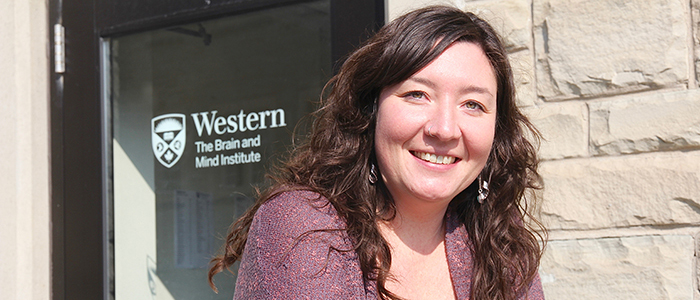News and Updates
Contact
Faculty of Social Science
Social Science Centre
Room 9438
Western University
T. 519-661-2053
F. 519-661-3868
E. social-science@uwo.ca
Study suggests why seniors are less able to filter ‘cocktail-party’ noise
July 10, 2017
Older people have difficulty attuning themselves to conversation in a noisy room — even when they’re trying hard to listen – because their brains have a tougher time tracking speech rhythms and patterns, suggests a new study led by a Western University researcher.
That means crowded-room conversations may be a meaningless jumble for some people, even if they don’t have hearing loss.
The so-called “cocktail party effect” ordinarily allows people to be able to tune in to one conversation even in a sea of other noise. That’s because specific electrical activity in the brain (called neural oscillations) will lock in to the talking person’s speech patterns and block out irrelevant auditory information around them.
But older people, especially, are less able to distinguish between and among sounds. Using electroencephalography to measure neural responses to the rhythms of sound, researchers found that could be because of significant differences in how older and younger adults process what they hear.
They discovered that the neural oscillations in older adults don’t synchronize as well when dealing with sound rhythms that replicate speech rates. What’s more, older adults may not have the same attentional capacities to overcome this inability to track speech rhythms. In younger and older adults, rhythm tracking and attention seem to trade off differently.
“What we found was that younger and older adults have different strategies for ‘listening closely’ to sounds,” said lead author Molly J. Henry of the Department of Psychology and the Brain and Mind Institute at Western University.
“Ideally, understanding how the brain balances different listening strategies might lead us to design better hearing devices if we know which sound features to enhance,” Henry said.
The study is newly published in Nature Communications.

